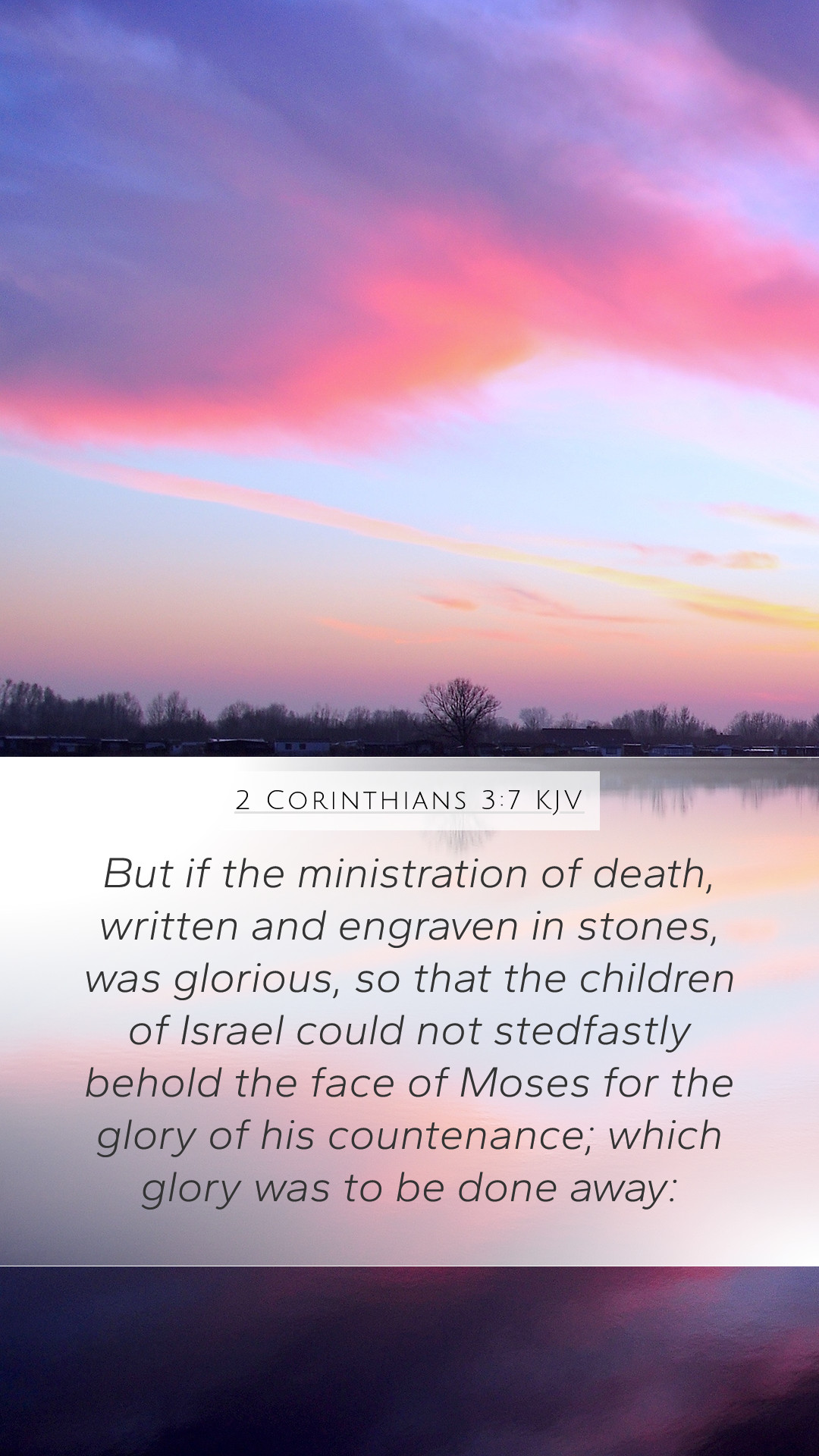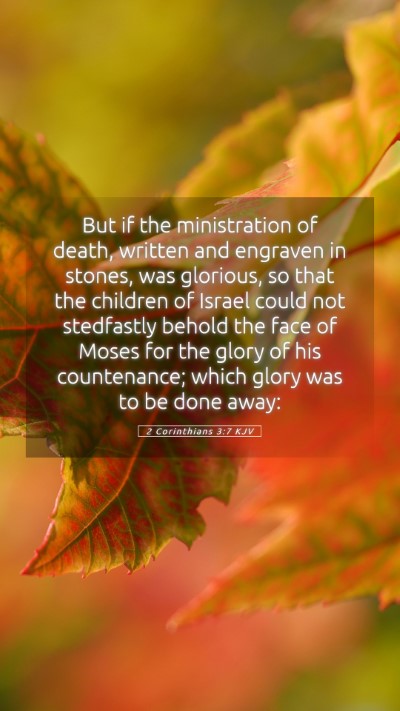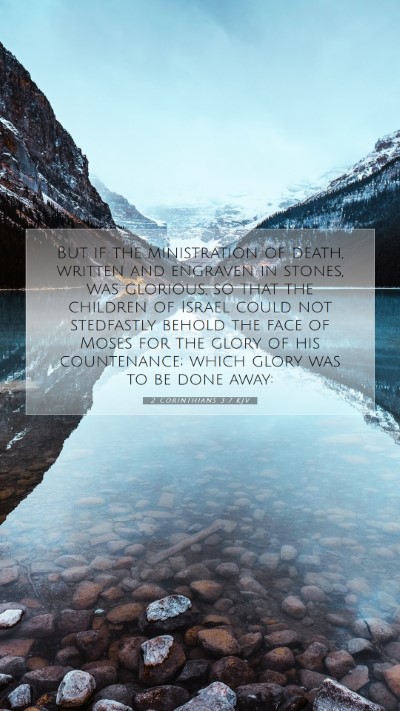Understanding 2 Corinthians 3:7
2 Corinthians 3:7 states: "But if the ministry of death, carved in letters on stone, came with such glory that the Israelites could not gaze at Moses' face because of its glory, which was being brought to an end..."
Overview of 2 Corinthians 3:7
This verse addresses the contrast between the Old Covenant, represented by the law given to Moses, and the New Covenant established through Christ. The Apostle Paul describes the glory associated with the Old Covenant, though he refers to it as the "ministry of death." This highlights that while the law brought a certain glory, it ultimately could not provide life or salvation.
Insights from Public Domain Commentaries
Matthew Henry's Commentary
Matthew Henry emphasizes the significance of the law being referred to as a "ministry of death." He explains that although the law was glorious, it was limited by its inability to bring life. The glory of the law, seen during Moses' encounter with God, was temporary and faded, symbolizing the temporary nature of the Old Covenant.
Albert Barnes' Notes
Albert Barnes elaborates on the phrase "carved in letters on stone," indicating that this refers to the Ten Commandments. He points out that despite the radiant glory that accompanied Moses, this ministry ultimately led to condemnation. Barnes stresses the importance of understanding the transitory nature of the Mosaic law in contrast to the everlasting joy and glory of the New Covenant through Jesus Christ.
Adam Clarke's Commentary
Adam Clarke provides additional context by discussing the cultural and historical implications of the law. He notes that the glorious nature of Moses' face was a sign of divine approval yet also served to highlight the inadequacy of the law itself to bring true righteousness. Clarke underscores the transformative power of the New Covenant, which offers a greater glory that lasts longer than that of the Old Covenant.
Key Themes Reflected in 2 Corinthians 3:7
- The contrast between the Old and New Covenants: The law, while glorious, leads to condemnation without the grace of Christ.
- The temporary nature of the Old Covenant: The glory associated with Moses was fleeting and serves as a stark contrast to the enduring glory found in Christ.
- The transformative power of the Gospel: The New Covenant, in Jesus, offers spiritual transformation and life, emphasizing relationship over ritual.
Application of 2 Corinthians 3:7
Understanding the implications of this verse is crucial for applying biblical truths to daily life. Christians are called to reflect on the freedom and life brought by Christ compared to the old laws that could not offer salvation. Engaging with this verse in Bible study groups or online Bible study can lead to deeper insights regarding the significance of grace over the law.
Cross References
- Exodus 34:29-35 - Moses' radiant face after meeting God
- Romans 7:10-12 - The law brings death
- Hebrews 8:6-13 - The superiority of the New Covenant
Final Thoughts
The depths of 2 Corinthians 3:7 illustrate not only the limitations of the Old Covenant but also the profound richness found in the New Covenant established through Christ. Engaging with this scripture can lead to a deeper appreciation for the grace that sustains believers today and a clearer understanding of how to interpret and apply similar Bible verses in life.
For Further Study
Consider using various bible study tools and resources to dive deeper into this verse and its surrounding context. This can include bible study guides, group discussions on bible study topics, or personal reflection on the meaning of Bible verses.


